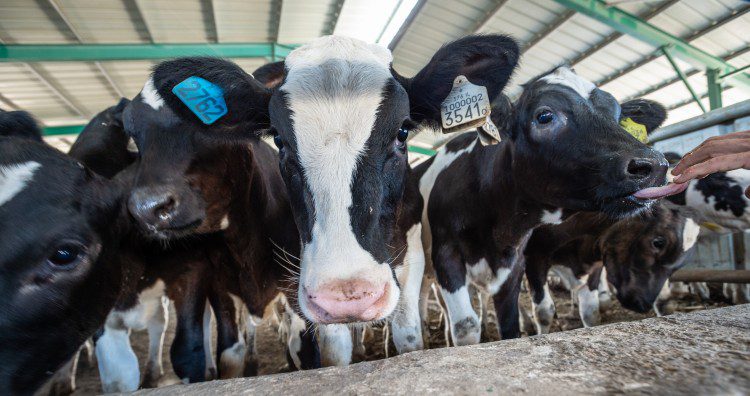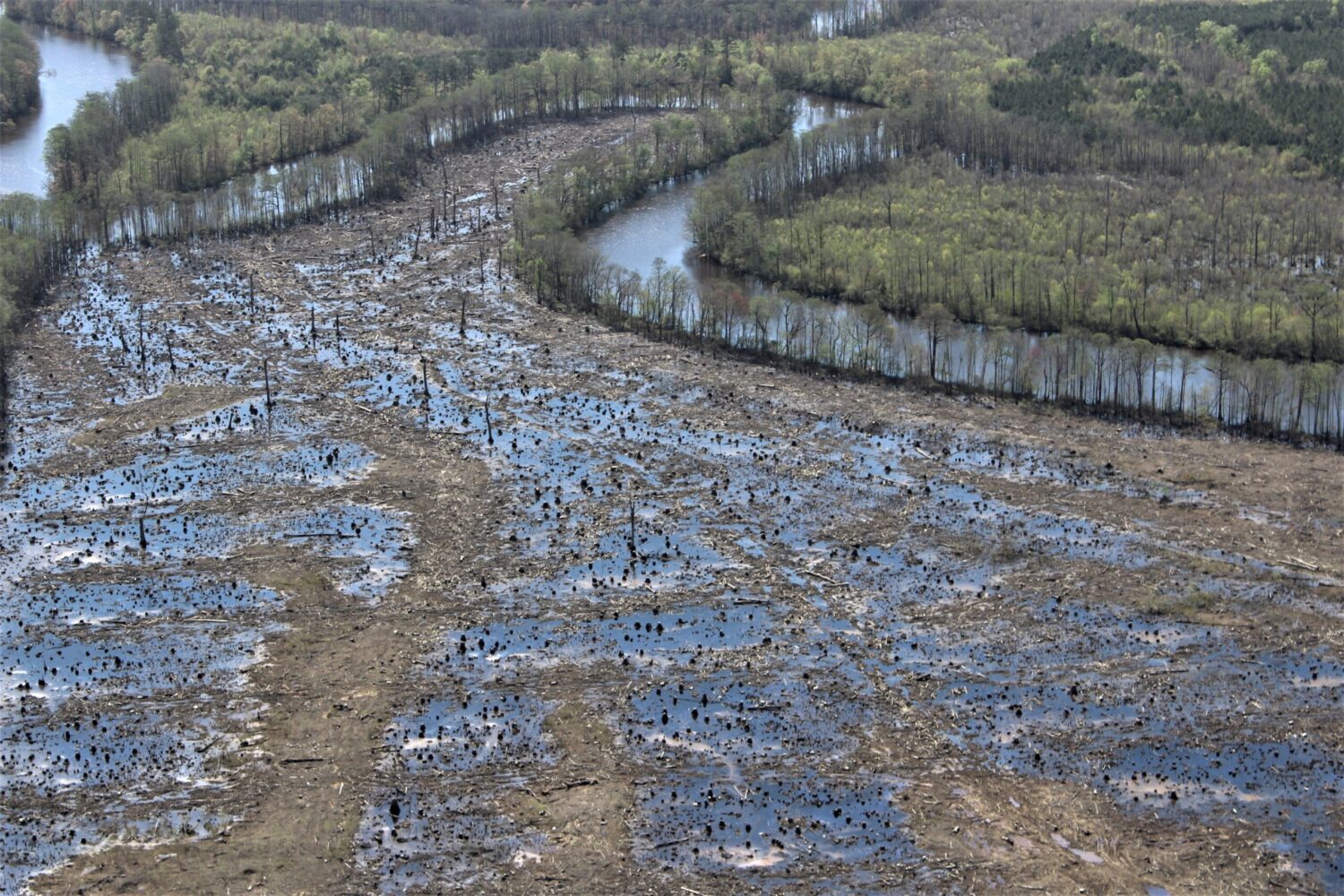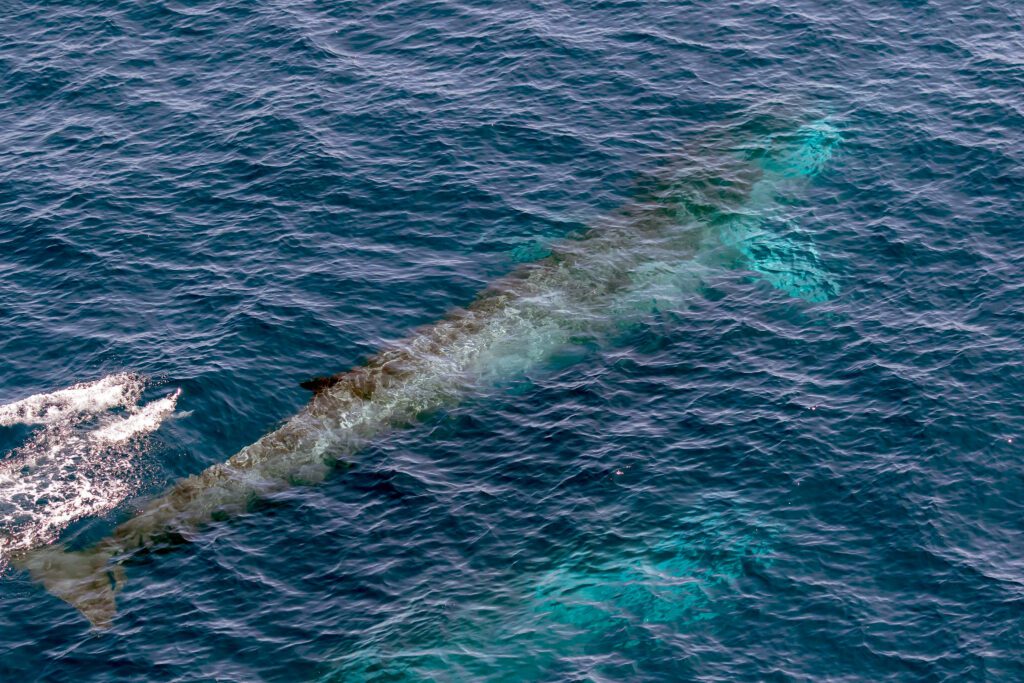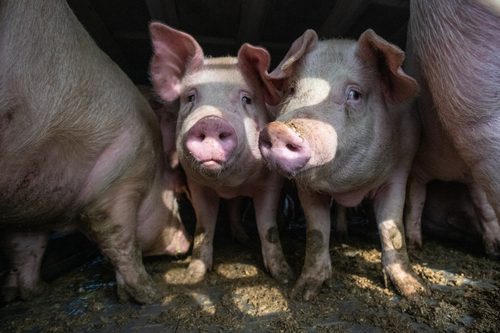


A new report exposes the outsized and growing impact of Europe’s animal agriculture industries on the climate.
By Reynard Loki, Independent Media Institute
6 min read
A recent analysis conducted by Greenpeace has come to an extremely worrying conclusion: If the European Union (EU) doesn’t put checks on the greenhouse gas impacts created by the expanding animal agriculture industry, the bloc risks missing its Paris climate agreement targets, which are intended to limit global warming to 1.5°C above pre-industrial levels to avoid the worst impacts of climate change.
Published in September, “Farming for Failure: How European Animal Farming Fuels the Climate Emergency” crunches data from the United Nations Food and Agriculture Organization (FAO) and other peer-reviewed research to find that animal farming in the EU is responsible for the equivalent of 704 million metric tons of carbon dioxide (CO2) annually — mostly through methane emissions resulting from the digestive processes of ruminants like cows and sheep — representing 17% of the bloc’s total greenhouse gas emissions. The authors note that this amount is more than the total amount of CO2 produced yearly by all the cars and vans currently on the roads in the EU.
In order to meet the goals of the Paris agreement, global greenhouse gas emissions must be halved by 2030 and reach net-zero by 2050. But current national commitments are insufficient, say scientists. “The Paris Agreement is not enough. Even at the time of negotiation, it was recognized as not being enough,” says Alice C. Hill, senior fellow for energy and the environment at the Council on Foreign Relations. “It was only a first step, and the expectation was that as time went on, countries would return with greater ambition to cut their emissions.”
To make matters worse, the ongoing expansion of the EU meat and dairy industries threatens to upend the bloc’s climate goals. Between 2007 and 2018, the EU’s meat and dairy production saw a 9.5% increase, which, according to Greenpeace, resulted in a 6% increase in annual emissions — the same impact as putting 8.4 million new cars on the road.
Steep reductions in the EU’s production of animal-based agricultural products could significantly reduce the bloc’s climate impact. According to the report, a 50% reduction in animal farming would prevent the equivalent of 250 million metric tons of CO2 from entering the atmosphere. That is equivalent to the combined emissions, across all sectors, of the 11 lower-emitting EU nations. “Regardless of whether European climate ambition stays low or rises to match what’s scientifically necessary, one fact remains crystal clear: achieving emissions reductions requires radical changes in the agriculture sector, particularly in animal farming,” the report states.
Of course, we need to eat. But when it comes to the environment (and frankly, animal rights), it’s what we decide to eat that really matters. And one dietary change can help immensely: moving from meat-based to plant-based diets. “Plant-based foods usually have a lower impact than meat,” write Julia Moskin, Brad Plumer, Rebecca Lieberman and Eden Weingart for the New York Times, adding that it is “more efficient to grow crops for humans to eat than it is to grow crops for animals to eat and then turn those animals into food for humans.” They note that a recent study by the FAO found that “on average, it takes about three pounds of grain to raise one pound of meat.” A separate study by Our World in Data found that emissions from plant-based foods are 10 to 50 times lower than those from animal products.
The connection between animal agriculture and the climate crisis isn’t just a problem in the EU; it is a global issue. Worldwide, meat and dairy production is responsible for around 14.5% of global greenhouse gas emissions. In fact, according to a 2018 study published in the journal Science by zoologist Joseph Poore of the University of Oxford and agroecologist Thomas Nemecek of Zurich University of Applied Sciences, “the impacts of animal products can markedly exceed those of vegetable substitutes to such a degree that meat, aquaculture, eggs, and dairy use ~83% of the world’s farmland and contribute 56 to 58% of food’s different emissions, despite providing only 37% of our protein and 18% of our calories.”
To put it another way — considering the planet’s limited resources and the outsized impact of animal agriculture on the environment — raising animals for human consumption is illogical. Then, of course, there is the terrible impact that factory farming has on the health and well-being of the animals trapped in this cruel system.
The Greenpeace report urges European policymakers to “acknowledge the magnitude of animal farming emissions and commit to immediate and lasting reductions in industrial meat and dairy production and consumption.”
- Urge the European Union to stand by Paris climate commitments and reduce reliance on animal agriculture.
Cause for concern…

President Biden’s EPA nominee Michael Regan supported the wood pellet industry in North Carolina, where he currently serves as secretary of the state’s Department of Environmental Quality. That industry has devastated the health of rural low-income communities of color, argues EFL contributor Scot Quaranda on Truthout.
- Biden’s EPA nominee must act on forests to be an environmental justice champion (Scot Quaranda, Earth | Food | Life on Truthout)
- Fossil fuel pollution causes 1 in 5 premature deaths globally: study (Matthew Green, Reuters)
- State-owned fossil firms’ plan to invest $1.9 trillion threatens Paris climate agreement hopes (Fiona Harvey, The Guardian)
- Wisconsin judge orders start to wolf hunt this month (Associated Press)
- Appeals court rebuffs youth climate activists in novel case against government (Rebecca Beitsch, The Hill)
Round of applause…

“Some whale songs can give scientists valuable information about the ocean’s geography, according to a study published Thursday in the journal Science,” reports Molly Taft for Earther. “What’s more, their songs can be used as a form of seismic testing, which uses blasts of sound to map out the ocean floor. Forms of this technology can be harmful to whales and other marine life. If we’d only listened more closely to whales, we may have not needed to develop certain practices that hurt them.”
- How whale songs can help us explore the ocean (Molly Taft, Earther)
- U.S. Interior Department postpones sales of oil drilling rights (Jennifer A. Dlouhy, Bloomberg)
- Judge: Trump’s lifting of mining ban in U.S. West was wrong (Matthew Brown, Associated Press)
- EPA again orders Amazon to stop selling illegal pesticides (Katherine Khashimova Long, Seattle Times)
- If you’re an animal lover there has never been a better time to go vegan (Anthony Elder, Kent Wired)
Parting thought…

“Humans are adept at categorizing particular species according to cultural norms: in the United States, for instance, dogs and cats as ‘pets’; rats, mice and cockroaches as ‘pests’; cows, pigs and chickens as ‘food.’ These categorizations maintain hierarchies in which humans are situated at the top, and they justify human use and treatment of other species in particular ways.” —Kathryn Gillespie, “The Cow with Ear Tag #1389” (The University of Chicago Press, 2018)
Reynard Loki is a writing fellow at the Independent Media Institute, where he serves as the editor and chief correspondent for Earth | Food | Life. He previously served as the environment, food and animal rights editor at AlterNet and as a reporter for Justmeans/3BL Media covering sustainability and corporate social responsibility. He was named one of FilterBuy’s Top 50 Health & Environmental Journalists to Follow in 2016. His work has been published by Yes! Magazine, Salon, Truthout, BillMoyers.com, EcoWatch and Truthdig, among others.
Earth | Food | Life (EFL) explores the critical and often interconnected issues facing the climate/environment, food/agriculture and nature/animal rights, and champions action; specifically, how responsible citizens, voters and consumers can help put society on an ethical path of sustainability that respects the rights of all species who call this planet home. EFL emphasizes the idea that everything is connected, so every decision matters.
Click here to support the work of EFL and the Independent Media Institute.
Questions, comments, suggestions, submissions? Contact EFL editor Reynard Loki at [email protected]. Follow EFL on Twitter @EarthFoodLife.